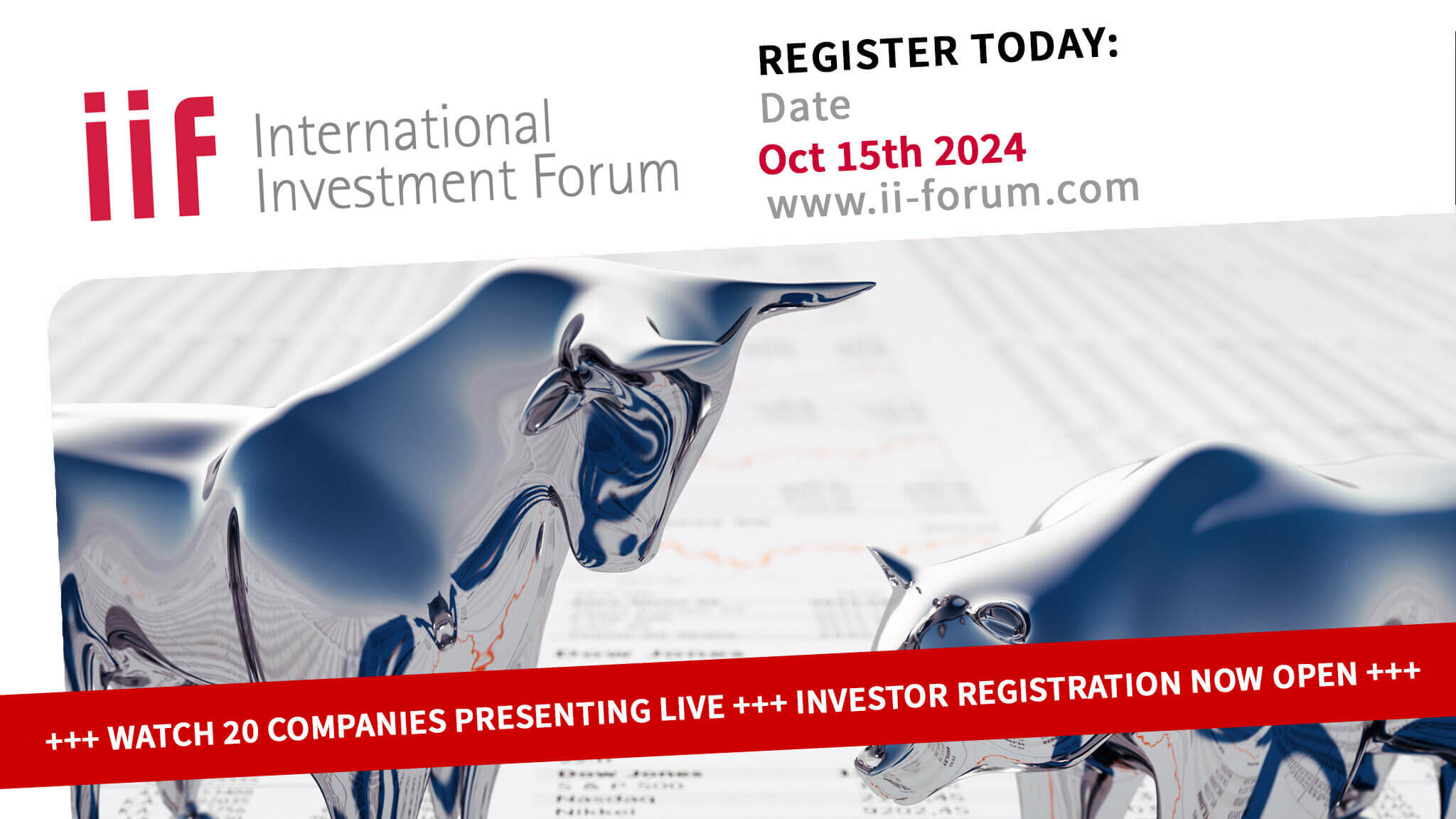October 9th, 2024 | 07:10 CEST
BP, dynaCERT, and Amazon – Substantial profits through new markets
Under the leadership of its new CEO, the oil and gas giant BP is scaling back its ambitious climate targets. Even if the policy of some countries would prefer to focus on zero emissions, transitional technologies are needed between fossil fuels and renewable energies. It is precisely at this interface that the technology company dynaCERT is developing applicable solutions for CO₂ reduction for diesel engines. The Company has now received certification from the renowned organization Verra according to the latest and globally valid CO₂ standards. The Verra Verified Carbon Standard (VCS) program is the world leader in the certification of carbon credits. This certification opens up an additional market for dynaCERT and its investors, from which shareholders also benefit. Amazon, in turn, is using AI to improve both efficiency in its warehouses and the sustainability of its logistics. We take a look at the growth opportunities in detail.
time to read: 6 minutes
|
Author:
Juliane Zielonka
ISIN:
BP PLC DL-_25 | GB0007980591 , DYNACERT INC. | CA26780A1084 , AMAZON.COM INC. DL-_01 | US0231351067
Table of contents:

"[...] The VERRA certification adds credibility to dynaCERT's emission reduction technologies by demonstrating compliance with internationally recognized standards for carbon emissions reductions and sustainable development. [...]" Jim Payne, CEO, dynaCERT Inc.
Author
Juliane Zielonka
Born in Bielefeld, she studied German, English and psychology. The emergence of the Internet in the early '90s led her from university to training in graphic design and marketing communications. After years of agency work in corporate branding, she switched to publishing and learned her editorial craft at Hubert Burda Media.
Tag cloud
Shares cloud
Change of course at BP: Oil giant prioritizes investor confidence over climate protection
Under the leadership of new CEO Murray Auchincloss, the British energy company BP is abandoning its lofty climate targets. The ambitious goal of reducing oil and gas production by 2030 has now been abandoned. The consequence would have been a cost-intensive, radical restructuring of the Company. This led to great skepticism among investors. Instead, the Company is increasing its investments in fossil fuels in order to regain the trust of investors and increase profitability.
Auchincloss, who has been running BP since January, needs to stabilize the Company's stock price to reassure investors. To this end, BP is planning several new projects in the Middle East and the Gulf of Mexico to increase its oil and gas production.
In Iraq, the Company is also in talks about three new projects, including one in Majnoon field. In Kuwait, possible investments in the redevelopment of oil fields are also being considered.
In the Gulf of Mexico, the development of the Kaskida reservoir is pending, and the release of the Tiber field is planned. These projects should help to position BP as a "simpler, more focused, and more valuable company".
In its new investments, BP is placing a particular emphasis on improved profit margins. In Iraq, for example, new contracts with more generous profit-sharing models are expected, which promise higher returns for the Company. Despite the refocusing on fossil fuels, BP is officially sticking to its long-term goal of achieving net-zero emissions by 2050. Exactly how this target will be reconciled with the increased investment in oil and gas remains a mystery. It also remains to be seen how investors and climate activists will react to this change. BP's decision could set the tone for the entire industry.
dynaCERT receives Verra certification: A breakthrough for carbon credits in the transportation sector
A bridge technology that combines fossil fuels with renewable energies is the technology of dynaCERT. The Canadian company develops and markets applicable technologies to reduce carbon emissions from diesel engines. In particular, HydraGEN™ technology is designed to reduce fuel consumption and carbon emissions from a wide range of internal combustion engines used in areas such as transportation, mining, construction, oil and gas, and diesel generators. This means that fleet operators in sectors such as logistics can use it to meet environmental requirements, save on diesel costs, and increase their competitiveness.
dynaCERT this week received final approval from Verra for its methodology for calculating carbon credits. Verra, a respected non-profit organization in the voluntary carbon markets, published the Revised Vehicle Fleet Efficiency Methodology on October 4, 2024. The methodology, which includes dynaCERT's technology, optimizes the fuel and power consumption of transport vehicles and mobile machinery, thereby demonstrably reducing greenhouse gas emissions.
Verra certification allows dynaCERT customers to earn valuable carbon credits over multiple years using its HydraGEN™ technology. In an interview, CEO Jim Payne stated: "Our certification to the VERRA standards will enable dynaCERT to generate carbon credits, or carbon offsets, for the emissions reductions achieved by its technologies. These credits can be sold or traded in the carbon markets, providing a recurring revenue stream for both our customers and the Company." This creates an additional financial incentive for companies to use the technology.**
HydraGEN™ technology from dynaCERT produces hydrogen and oxygen through a unique electrolysis system and feeds these gases into the air intake to improve combustion. The device can be retrofitted to all standard diesel engines. Its use has resulted in lower carbon emissions and improved fuel efficiency.
Particularly noteworthy is the precise and objective measurement of greenhouse gas emission reductions through the HydraLytica telematics system. This is expected to increase the market value of dynaCERT's carbon credits. Uncertainties and assumptions, which often influence the valuation of competing carbon credits, can be avoided. Verra certification opens up new opportunities for dynaCERT to offer its technology globally. The more companies that adopt the HydraGEN™ technology, the more dynaCERT can grow. CEO Jim Payne will reveal more about the current growth strategy at the 12th International Investment Forum, IIF, on October 15, 2024. Click here to register.**

Amazon relies on generative AI for faster deliveries and more sustainable logistics
Amazon is increasingly relying on generative AI to further reduce its delivery times and increase efficiency in its warehouses. The e-commerce giant is using the technology to optimize delivery routes, develop smarter warehouse robots, and improve the placement of products in its distribution centers. The goal is to increase the share of orders delivered on the same or next day in the 60 largest metropolitan areas in the US.
Steve Armato, Amazon's Vice President of Transportation Technology and Services explains that 60% of Prime orders in these areas are already delivered within one day. The introduction of generative AI is expected to further increase this rate. Amazon has been developing AI models for demand forecasting and supply chain optimization since 2020 and is now deploying them at scale.
AI-driven robots are increasingly used in warehouses, where they work together more efficiently and avoid obstacles. The number of warehouse robots has more than doubled, from 350,000 in 2021 to over 750,000 in 2023.
A particular focus is on the use of AI to promote sustainability. AWS sustainability spokeswoman Hilary Tam explains at a conference: "Generative AI has the potential to completely transform the way we handle data and advance sustainability." As an example, she cites Amazon's use of AI to improve packaging design and optimize returns management, which saves both materials and carbon emissions.
It also remains to be seen whether the massive investments in AI for Amazon will pay off. Industry experts have yet to see any significant increase in profits from the use of generative AI in retail.
The British oil company BP is radically changing course under its new CEO, Murray Auchincloss. The Company is abandoning its ambitious climate targets and instead is increasing its investments in fossil fuels. BP is planning new projects in the Middle East and the Gulf of Mexico to increase oil and gas production. Despite this realignment, BP is officially sticking to its long-term goal of achieving net-zero emissions by 2050. This change of course could set the trend for the entire energy industry. Canadian company dynaCERT has made a significant breakthrough. Its HydraGEN™ technology, which reduces fuel consumption and carbon emissions from internal combustion engines, has been certified by Verra. This certification enables dynaCERT customers to generate valuable carbon credits. The HydraLytica telematics system's precise measurement of emissions reductions further enhances the potential market value of these credits. This development opens up new global growth opportunities for dynaCERT and positions the Company as a major player in the emissions reduction space for internal combustion engines. To learn more about the Company's strategy CEO Jim Payne will present at the 12th IIF Digital Conference on October 15, 2024. E-commerce giant Amazon is increasingly relying on generative AI to reduce its delivery times and increase efficiency in its warehouses. The Company is using AI to optimize delivery routes, develop smarter warehouse robots, and improve product placement. Amazon aims to increase the share of same-day and next-day deliveries in the largest US metropolitan areas. Particular focus is being placed on using AI to promote sustainability, for example, through improved packaging design and optimized returns management.
Conflict of interest
Pursuant to §85 of the German Securities Trading Act (WpHG), we point out that Apaton Finance GmbH as well as partners, authors or employees of Apaton Finance GmbH (hereinafter referred to as "Relevant Persons") may hold shares or other financial instruments of the aforementioned companies in the future or may bet on rising or falling prices and thus a conflict of interest may arise in the future. The Relevant Persons reserve the right to buy or sell shares or other financial instruments of the Company at any time (hereinafter each a "Transaction"). Transactions may, under certain circumstances, influence the respective price of the shares or other financial instruments of the Company.
In addition, Apaton Finance GmbH is active in the context of the preparation and publication of the reporting in paid contractual relationships.
For this reason, there is a concrete conflict of interest.
The above information on existing conflicts of interest applies to all types and forms of publication used by Apaton Finance GmbH for publications on companies.
Risk notice
Apaton Finance GmbH offers editors, agencies and companies the opportunity to publish commentaries, interviews, summaries, news and the like on news.financial. These contents are exclusively for the information of the readers and do not represent any call to action or recommendations, neither explicitly nor implicitly they are to be understood as an assurance of possible price developments. The contents do not replace individual expert investment advice and do not constitute an offer to sell the discussed share(s) or other financial instruments, nor an invitation to buy or sell such.
The content is expressly not a financial analysis, but a journalistic or advertising text. Readers or users who make investment decisions or carry out transactions on the basis of the information provided here do so entirely at their own risk. No contractual relationship is established between Apaton Finance GmbH and its readers or the users of its offers, as our information only refers to the company and not to the investment decision of the reader or user.
The acquisition of financial instruments involves high risks, which can lead to the total loss of the invested capital. The information published by Apaton Finance GmbH and its authors is based on careful research. Nevertheless, no liability is assumed for financial losses or a content-related guarantee for the topicality, correctness, appropriateness and completeness of the content provided here. Please also note our Terms of use.




